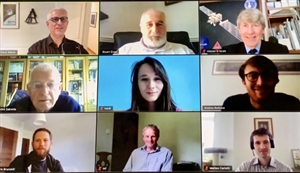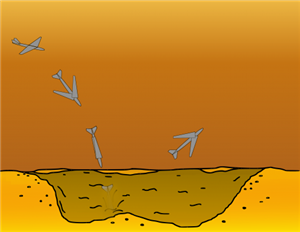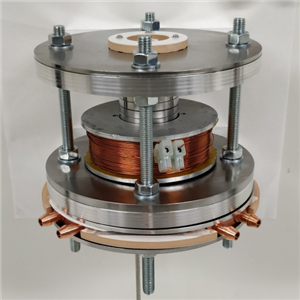
It will be immediately apparent that, this year, the final had to be an online event. Fortunately, the finalists coped admirably with the challenge of presenting, and answering questions, via Zoom.
 In the undergraduate category, Harry Llamas described the potential use of Martian regolith as protection against radiation, and Leander Iven spoke eloquently about orbital lifetime prediction for cubesats, but in the judges’ opinion, James McKevitt’s presentation on Astraeus, a concept for an ambitious airborne vehicle capable of emulating a gannet and diving into the oceans of Titan, was the winner.
In the undergraduate category, Harry Llamas described the potential use of Martian regolith as protection against radiation, and Leander Iven spoke eloquently about orbital lifetime prediction for cubesats, but in the judges’ opinion, James McKevitt’s presentation on Astraeus, a concept for an ambitious airborne vehicle capable of emulating a gannet and diving into the oceans of Titan, was the winner. Turning to the postgraduate category, Aled Davies talked optimistically about spacecraft manufacture and assembly in orbit, and Andrea Bellome presented a significant amount of material on optimising trajectories between multiple targets in space during his 15-minute slot. But it was the judges’ unanimous view that Alexander Schwertheim’s research into a novel Hall-Effect thruster, which exploits water as the fuel, was the most compelling.
Turning to the postgraduate category, Aled Davies talked optimistically about spacecraft manufacture and assembly in orbit, and Andrea Bellome presented a significant amount of material on optimising trajectories between multiple targets in space during his 15-minute slot. But it was the judges’ unanimous view that Alexander Schwertheim’s research into a novel Hall-Effect thruster, which exploits water as the fuel, was the most compelling.It is not yet clear when the two winners will have the opportunity to represent the UK in the International Final at the IAF Congress, but when they do, they will have an excellent chance of adding to the UK’s record of success in the competition.
Chris Brunskilll, Mike Adams and Chris Welch from the IET Satellite TN Executive team helped judge the competition. ChrisB and Mike shared these comments:
ChrisB - "It was a fantastic opportunity to support the 2020 IAF student space competition and see the research and ideas from some of the best students in the space sector. Despite the necessary change in format, the presenters provided a series of fascinating ideas for the exploration and utilisation of space. It is a pleasure to have been part of this competition and support the IET in contributing to this important event in the UK space community.”
Mike - "‘The IET Satellite TN committee really welcomed the opportunity to support the 2020 IAF student space competition. As one of the judging panel it was a privilege for me to participate in the competition and witness the exciting ideas put forward by all of the undergraduate and postgraduate students – all of which were presented with obvious enthusiasm as well demonstrating very high levels of professionalism and technical understanding. I would hope that the TN is able to continue to support this competition and others like it, especially it aligns so well with the aims of the TN to contribute to the sharing of knowledge and to support the wider interests of the satellite community."